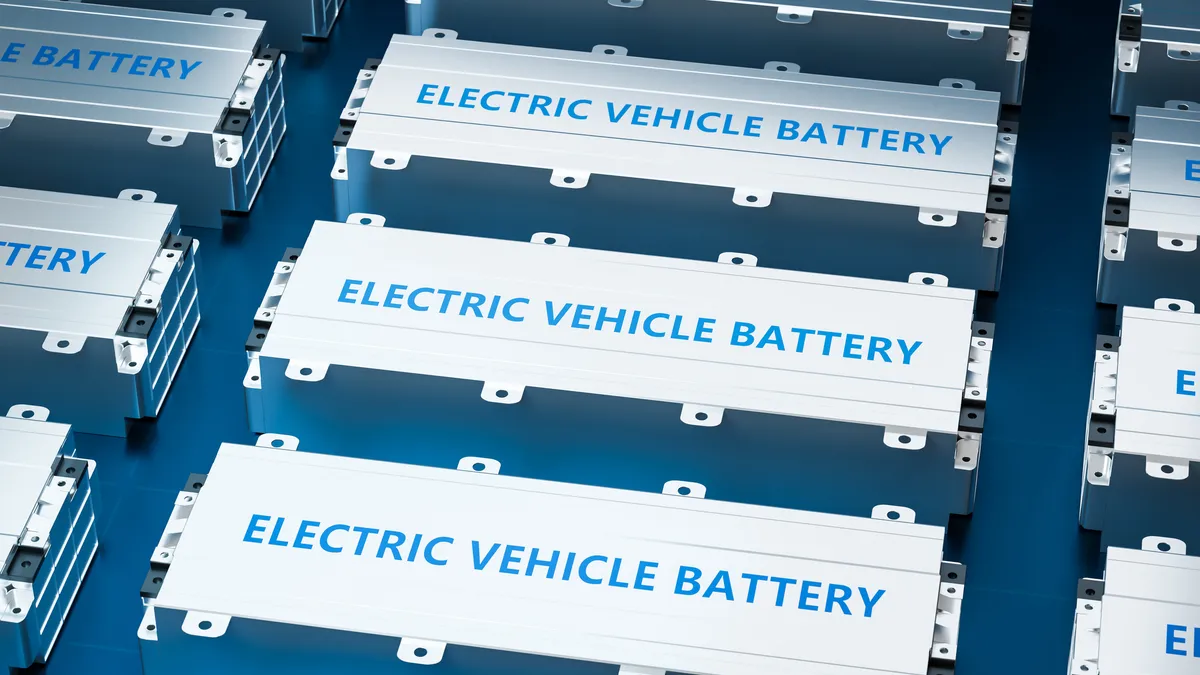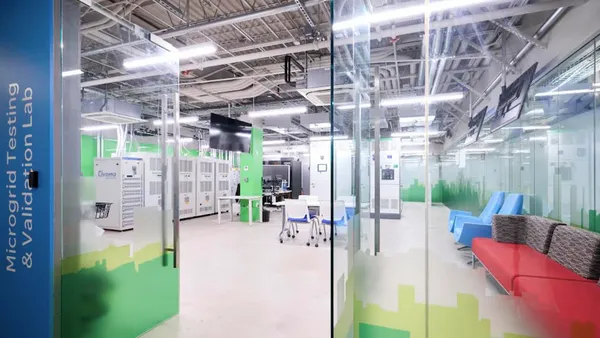Dive Brief:
- The Department of Energy opened another round of battery manufacturing funding late last month, offering $15.7 million for research and development opportunities for next-generation batteries and energy storage, according to a Jan. 29 press release.
- The funding aims to lower production costs for battery manufacturing, as well as further the development of emerging battery technologies and components, particularly sodium-ion. The department is also prioritizing battery R&D for energy storage applications.
- Concept papers for the funding are due March 4. The department will grant up to 13 awards, with a focus on projects that embrace smart manufacturing and scalability to produce new battery technologies.
Dive Insight:
The Energy Department has had a busy start to the year when it comes to battery funding, as it aims to lower costs and raise production capacity in the sector. On Jan. 24, the department announced $131 million for battery manufacturing R&D, including for another type of emerging battery technology — lithium-sulfur batteries. The biggest awardee, the United States Advanced Battery Consortium, received $60 million to further develop lightweight, lower-cost batteries.
Focus areas for the most recent funding opportunity cover different parts of the battery making process.
The first area, which includes a total of $10.7 million to fund three to eight projects, focuses on platforms that enable flexible, scalable and highly controllable battery manufacturing processes through the development of advanced machines.
This includes processes and machines for sodium-ion batteries, flow batteries that store energy in the electrolyte instead of the electrode, and scalable manufacturing of nanolayered films, comprised of thin material layers used for energy storage
The production of sodium-ion batteries has been a particular focus for many automakers given its potential to be a lower-cost, faster-charging alternative to lithium. Stellantis announced last month that it was investing in France-based sodium-ion battery startup Tiamat.
Flow batteries, meanwhile, have taken on new interest in the energy storage space for their long lifetime and fast recharge rates.
The second focus area is smart manufacturing platforms for battery production, which has been allocated a total of $5 million for two to five projects. This theme is for developing widely applicable smart manufacturing platforms that can be used to enhance battery manufacturing.
















